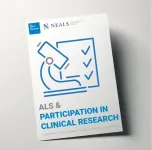(Press-News.org)
The rate of colorectal cancer screenings more than doubled when patients were given a choice between which type of screening they wanted—a take-home kit or colonoscopy—compared to those who were only offered the colonoscopy, according to new research led by the Perelman School of Medicine at the University of Pennsylvania. Facilitated through a community health center in which about half of patients had Medicaid insurance, the study—published in Clinical Gastroenterology and Hepatology—provides insights about how to boost screenings among groups that are typically less likely to have the test.
“Offering the choice of colonoscopy or take-home kits seem to have the advantage of maximizing the rates of colonoscopy—the most effective screening tool—while not overloading individuals with too much of a choice, which could have lowered overall participation,” said the study’s lead author, Shivan Mehta, MD, MBA, MSHP, Penn Medicine’s associate chief innovation officer and an associate professor of Gastroenterology.
Colon cancer screening is now recommended for patients of average risk—meaning no personal or family history of the disease, among other factors—beginning at age 45. There two main methods are colonoscopies, which are recommended once every 10 years for a person to be considered “up-to-date," or take-home fecal immunochemical tests, which can be completed once a year in lieu of a colonoscopy, provided there are no abnormal findings.
When patients in Mehta’s study were offered only a colonoscopy, the study showed that just under six percent completed the test within six months. But when patients were given the opportunity to choose between a colonoscopy and a fecal immunochemical test (FIT)—which can be completed at home and mailed in, pre-paid, to the lab—the completion rates jumped to almost 13 percent. Among the group who were offered a choice between the two methods, approximately 10 percent received colonoscopies.
One arm of the study only offered patients the FIT kits, and about 11 percent of patients completed them within six months. While this was also an improvement on the colonoscopy-only offer, FIT kits are typically used to keep a patient up-to-date on their colorectal cancer screening for one year. Colonoscopies can identify early stages of cancer and allow for removal of pre-cancerous polyps. One screening could keep a patient up-to-date on screening for up to a decade.
The study was conducted among 738 patients aged between 50 and 74 at a community health center in Pottstown, PA. Researchers described the population as being “socio-economically underserved,” with about half the patients receiving Medicaid, and a baseline screening rate before the trial of about 22 percent, much lower than the national average, which is about 72 percent.
Despite the promising outcome from this study, there’s still more work to do. “There are certainly colonoscopy access issues across the country due to recovery from a slowdown during the pandemic and the expansion of screening recommendations for the younger population, but it might affect community health center populations more,” Mehta said. “Colonoscopy is important for screening, diagnosis of symptoms, and follow-up of positive stool testing, but we should think about offering less invasive options as an alternative and as a choice if we want to increase screening rates.”
Another important aspect of this study was that it offered screening through mailed outreach, which has been shown to boost screening rates in the past since it does not rely on patients coming in to the clinic. This also may have explained the low overall response rate.
Research on how screenings are offered could play a greater role in improving surveillance and outcomes among even younger populations than those studied, as colorectal cancer rates have risen among patients younger than 50.
This study was funded by a Young Investigator Award from the National Comprehensive Cancer Network. It was also partially funded by the National Cancer Institute (K08CA234326).
END
HOUSTON, May 16, 2024 – Thermoelectric materials could play an important role in the clean energy transition, as they can produce electricity from sources of heat that would otherwise go to waste without generating additional greenhouse gases or requiring large up-front investment. But their promise has been slowed by the fact that most current thermoelectric materials don’t efficiently produce enough power to be useful for many practical applications.
The search for new, more efficient materials involving complex chemical ...
About The Study: The results of this study suggest that artificial intelligence may be associated with enhanced patient care and oncological decision-making in patients with oropharyngeal squamous cell carcinoma through detection of localized versus advanced cancer stages. Further model refinement and external validation with electronic health records at different institutions are necessary to improve algorithm accuracy and clinical applicability.
Corresponding Author: To contact the corresponding author, Antoine Eskander, M.D., email antoine.eskander@mail.utoronto.ca.
To access the ...
Water shortages are expanding across the Earth. This is particularly acute in desert areas of the Middle East that are subject to both drought and extreme conditions such as flooding. As a result of these uncertainties, there is an increasing reliance on shallow aquifers to mitigate these shortages. However, the characteristics of these aquifers remain poorly understood due to the reliance on sporadic well logs for their management.
To address this challenge a team of researchers at the USC Viterbi School of Engineering Ming Hsieh Department of Electrical and Computer Engineering along with collaborators ...
Women’s health experts from the Raquel and Jaime Gilinski Department of Obstetrics, Gynecology and Reproductive Science at the Icahn School of Medicine at Mount Sinai will present new research at the 2024 American College of Obstetricians and Gynecologists (ACOG) Annual Clinical and Scientific Meeting in San Francisco from May 17–19. Please let me know if you would like to coordinate an interview about their forthcoming presentations. Mount Sinai obstetricians and gynecologists are also available to comment on breaking news and other trending topics on prenatal care and women’s ...
In the United States, about 30-40% of donor hearts aren't considered for transplant due to inadequate function in the donor.
This creates a drop in the number of donated hearts that are available to be matched with someone who needs a heart transplant.
A team at University of Michigan Health led by Alvaro Rojas-Pena, M.D., a research investigator with the section of transplantation surgery at University of Michigan Health has spent the past eight years looking at better ways to transport organs for donation, specifically hearts, to improve the number of organs ...
CHAMPAIGN, Ill. — Large language model-based chatbots have the potential to promote healthy changes in behavior. But researchers from the ACTION Lab at the University of Illinois Urbana-Champaign have found that the artificial intelligence tools don’t effectively recognize certain motivational states of users and therefore don’t provide them with appropriate information.
Michelle Bak, a doctoral student in information sciences, and information sciences professor Jessie Chin reported their research in the Journal of the American Medical Informatics Association.
Large language model-based chatbots — also known as generative conversational agents ...
AUSTIN, Texas -- The Securities and Exchange Commission acts as Wall Street’s traffic cop, fining companies for such infractions as securities fraud and insider trading. New research from Texas McCombs finds another parallel between the SEC and traffic enforcement: pressure to meet self-imposed quotas.
Assistant accounting professors Matthew Kubic and Sara Toynbee find that the agency files twice as many enforcement cases in September as in other months, a phenomenon they call the September spike. They also link the increase in cases to smaller fines that reduce what the government takes in from violators.
The reason for the ...
As researchers search for new insights into Amyotrophic Lateral Sclerosis (ALS), there is an ever-greater need for data from clinical trials and research studies. However, many people living with ALS are not certain how to get involved with clinical research, and the demographics of current ALS clinical trial participants are not representative of the full population of people living with the disease worldwide.
To address the critical need for diversity and accessibility in ALS clinical trials and research studies, the Illinois-based Les Turner ALS Foundation has published a new ...
Ann & Robert H. Lurie Children’s Hospital of Chicago announces the launch of the Journal of Health Advocacy (JHA), the first of its kind peer-reviewed open access journal housed within the organization’s Patrick M. Magoon Institute for Healthy Communities. This new journal bridges the gap between knowledge and action to empower individuals and groups to address real-world challenges to health equity. It opened for submissions May 1, 2024.
“Disseminating and recognizing advocacy that is so often successful ...
NEW ORLEANS, La. – Ochsner Health is proud to announce its recognition as one of America’s Best Employers for Diversity for 2024. This honor, awarded by Forbes in collaboration with market research firm Statista, places Ochsner Health among the elite 500 companies leading the way in diversity, equity and inclusion (DEI) initiatives within the United States.
Dedicated to enhancing access and opportunities for all its employees, Ochsner Health is a frontrunner in fostering a professional environment where diversity is celebrated, and every employee is empowered to contribute ...


